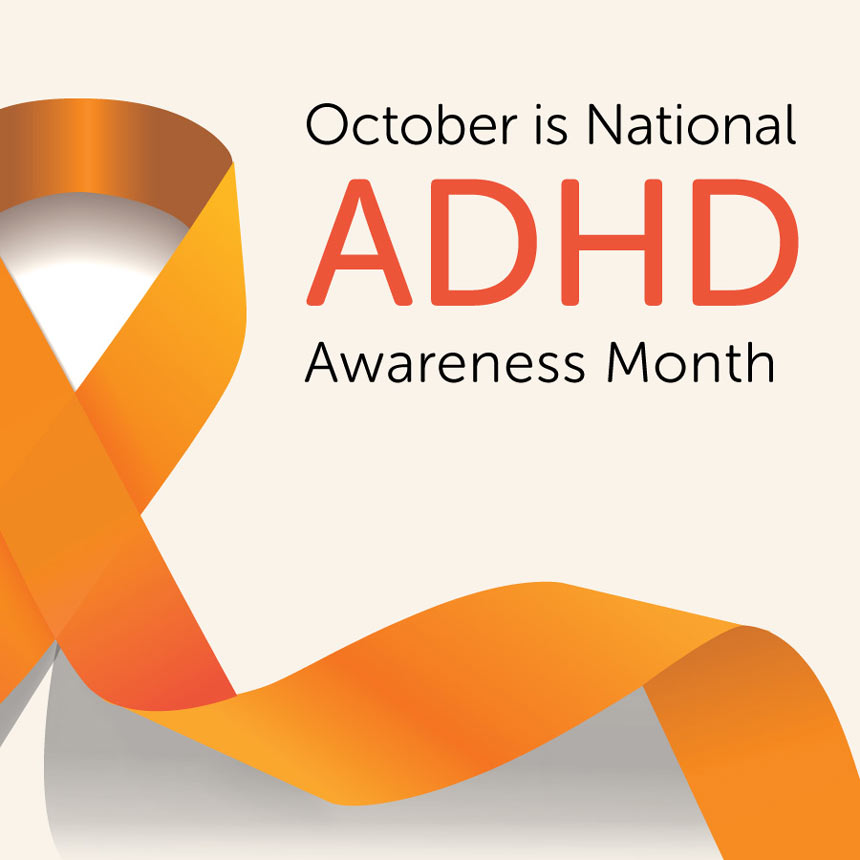ADHD is No Punchline, it is a Complex Condition
Oct 26, 2023

As awareness of Attention Deficit Hyperactivity Disorder has grown in recent decades, the public has come to use the terms casually.
“Oh, she’s so ADHD.”
“Yeah, he’s hyperactive.”
With the popularity of online quizzes, people now “diagnose” themselves or others. But ADHD is a complex condition whose symptoms can mimic or coexist with other health issues.
That’s why a true diagnosis is best entrusted to a medical or behavioral health professional experienced in identifying and treating ADHD. The right medication and therapy can be life-changing for children or adults with this diagnosis.
A primary-school client of Child and Family Mental Health Therapist Sarah exhibited lack of impulse control and emotional regulation, which could stem from many causes, such as trauma or delayed development.
“Since the symptoms look so similar, it can be hard to tell,” she said.
As a result of work in the Parent-Child Interaction Therapy, the client “began regulating emotions more independently and staying on task,” she said. “However, symptom still interfered with peer relations and a client we’ll call Harper was falling behind academically.”
Once hyperactivity was added to the equation, Harper’s doctor arrived at an ADHD diagnosis and the parents agreed to medication.
“They saw improvement in the first week with impulse control,” Sarah said. “Harper was calm and focused during tasks. Confidence increased with more successes. Harper was better able to relate to peers and even joined the soccer team.”
Boys are more frequently diagnosed with ADHD, but it affects girls as well. Some diagnostic prevalence data shows 11.7 percent for males and 5.7 percent for females, while the DSM-V-TR indicates a worldwide prevalence of 7.2 percent of children overall.
While therapy and medication provide significant improvement in symptoms, a stable home life is also crucial to the wellbeing of people with ADHD.
“Parents’ role in providing structure and routine is a critical component in managing ADHD,” says LifeWorks NW Child and Family Therapist Arielle. “Change and turmoil are disruptive and stressful for people with ADHD.”
Moving to a new state and starting a new school are just the kind of stresses that could have triggered Arielle’s middle-school ADHD client we’ll call Dakota.
“The mom is no-nonsense and very structured, which is great for this kind of condition,” Arielle said. “But having experienced outbursts and being labeled a troublemaker before, Dakota was nervous to start at a new school.”
Arielle worked with the client to develop tools for the kinds of situations new kids might face.
“As Dakota was telling me about some trouble from other students, I was envisioning all the ways that could go,” said Arielle. “But Dakota handled it. Told people to stop, walked away or got a teacher.
“Dakota really listened. It’s always wonderful when that happens.”
More about ADHD
LifeWorks NW: ADHD treatment is available.
National Institutes of Mental Health: What you need to know about ADHD.
Children and Adults With Attention Deficit Hyperactivity Disorder: An advocacy organization providing support for people with ADHD and educational resources.
ADDitude Magazine: A publication with information for professionals, parents, and people with ADHD.
Attention Deficit Disorder Association: Resources for those newly diagnosed with ADHD and their families, including virtual peer support groups.


